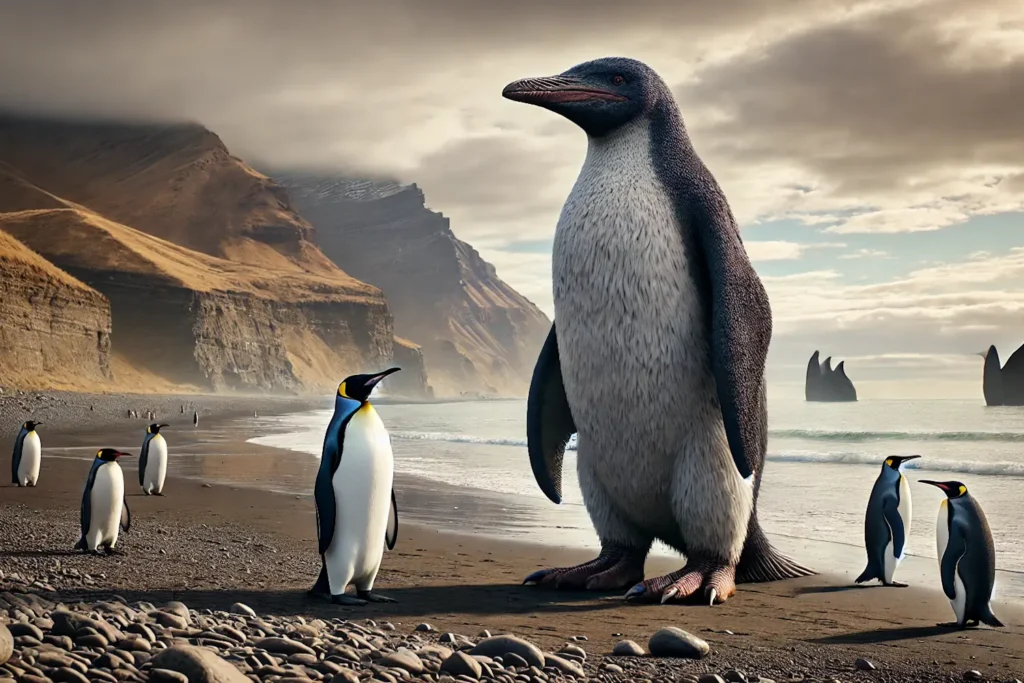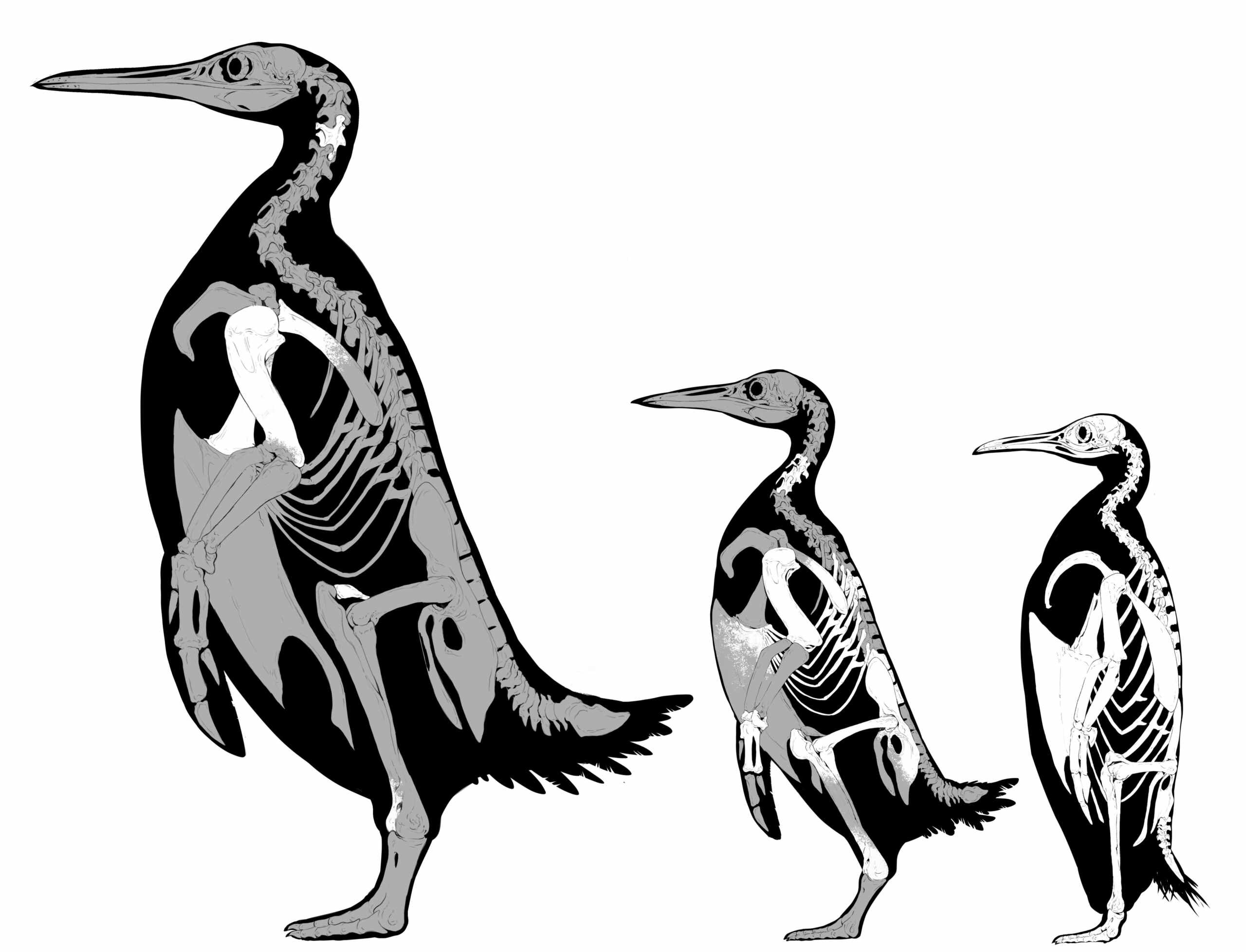The discovery of fossil remains in New Zealand demonstrates the existence of the largest penguin specimen ever seen before

@GreenMe/Dall-E
Huge fossilized bones from some of the largest penguins ever to have lived were recently discovered by scientists in New Zealand, a truly exceptional paleontological find.
Ancient beach boulders reveal discovery
These are from ancient beach boulders, some 57 million years old found at North Otago, a region on New Zealand’s South Island. The researchers used laser scanners to make digital models of the bones for comparisons with other fossil species and modern diving birds, such as today’s penguins.
These findings were worked upon by an international research team involving scientists from the University of Cambridge and have just been published in the Journal of Paleontology.
The largest fossil penguin: Kumimanu fordycei
Other remarkable finds are Kumimanu fordycei, a new species, declared as the largest fossil penguin ever found, weighing about 330 pounds in weight. It gets the name in honor of Dr. R. Ewan Fordyce, an emeritus professor at the University of Otago.
In addition, scientists found fossils from a second species, Petradyptes stonehousei, which, though smaller than Kumimanu fordycei, weighed in at about 110 pounds anyway-much larger than the emperor penguin of today. This naming honors the late Dr. Stonehouse, who was the first to observe the complete emperor penguin reproductive cycle.
Insights into penguin evolution
These two species are representatives of the history of penguins’ evolution, including all sorts of environmental and biological factors. They retained some primitive features-such as thinner flipper bones with muscles reminiscent of flying birds.

@Cambridge University
It is believed by scientists that it was this much larger size and weight that could have made these ancient penguins highly efficient swimmers.
Their bulk would serve to catch much larger prey and keep their bodies warm even in the chilliest of waters, an adaptation in which ancient penguins differed from those of today.
Sources: Cambridge University / Journal of Paleontology
